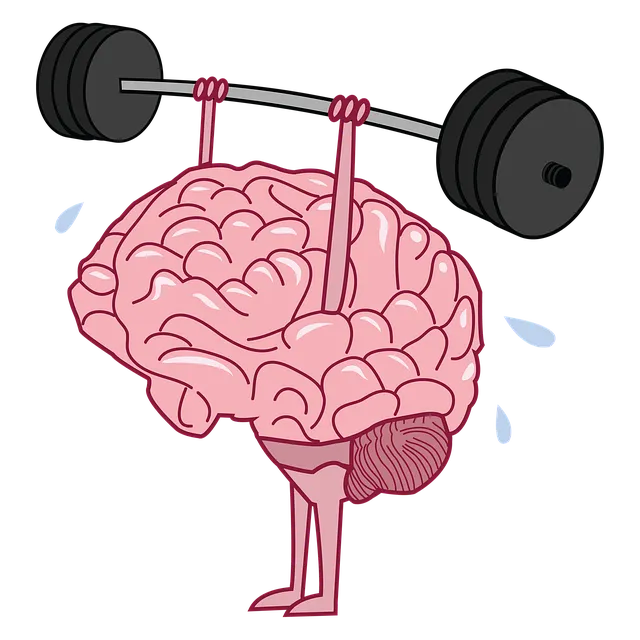In today's fast-paced world, Parker Kaiser Permanente mental health services lead the way in promoting mental wellness through accessible and confidential self-assessment tools. These tools help individuals evaluate emotional states, including mood management, self-esteem, and emotional regulation, enabling personalized support systems tailored to diverse needs. By democratizing access to resources, this holistic approach significantly improves mental health outcomes and quality of life. Inspired by Parker Kaiser Permanente's model, robust self-assessments integrate emotional awareness, stress management, and empathy building, empowering individuals to proactively manage their mental health while reducing barriers associated with stigma or limited resources. Future developments include remote assessment, cultural sensitivity, and integration into educational and workplace settings, alongside effective risk management for mental health professionals.
In today’s digital age, self-assessment tools play a crucial role in enhancing access to mental wellness support. This article explores the development of these tools, focusing on the influential Parker Kaiser Permanente Model, which has revolutionized mental health care. We delve into key components for comprehensive assessments and discuss implementation strategies to ensure personalized support becomes more accessible. By understanding the need for such tools within mental health services, we can foster better self-care practices and improved outcomes.
- Understanding the Need for Self-Assessment Tools in Mental Health Care
- The Parker Kaiser Permanente Model: A Framework for Effective Assessment
- Key Components of a Comprehensive Mental Wellness Self-Assessment
- Implementation and Future Directions: Enhancing Access to Personalized Support
Understanding the Need for Self-Assessment Tools in Mental Health Care

In today’s fast-paced world, mental wellness is as crucial as physical health, and self-assessment tools play a pivotal role in recognizing and addressing individual needs. Parker Kaiser Permanente mental health services have been at the forefront of this shift, acknowledging that many individuals may not readily seek professional help for their mental well-being. Self-assessment tools offer an accessible and confidential means to evaluate one’s emotional state, providing insights into potential areas of concern such as mood management, self-esteem improvement, and emotional regulation. These tools empower individuals to take a proactive approach to their mental health by identifying early warning signs and promoting timely interventions.
By integrating self-assessment tools, mental health services can cater to a broader audience, including those who may not yet meet clinical criteria for formal diagnosis but are seeking guidance on improving their overall emotional well-being. This democratization of access to mental wellness resources is particularly significant in fostering better mental health outcomes and enhancing the quality of life for many people.
The Parker Kaiser Permanente Model: A Framework for Effective Assessment

The Parker Kaiser Permanente Model offers a comprehensive framework for evaluating and enhancing mental wellness. This model prioritizes a holistic approach, focusing on both psychological and physical aspects of health. By integrating various assessment tools, it ensures a tailored and effective support system for individuals seeking mental health services. The framework encourages the development of personalized plans, considering each person’s unique needs and challenges.
This model emphasizes the importance of Empathy Building Strategies, fostering an environment where individuals feel heard and understood. It promotes Self-Care Practices as a fundamental component of treatment, encouraging patients to take an active role in their mental wellness journey. Additionally, Mindfulness Meditation is recognized as a powerful tool for stress reduction and emotional regulation, reflecting the model’s commitment to evidence-based practices.
Key Components of a Comprehensive Mental Wellness Self-Assessment

A comprehensive mental wellness self-assessment tool should incorporate several key components to effectively gauge and address an individual’s psychological well-being. One such tool, inspired by Parker Kaiser Permanente’s mental health services, can include sections on emotional awareness and regulation, stress management techniques, and empathy building strategies. By evaluating how individuals perceive and cope with their emotions, assessors can identify potential burnout prevention strategies for healthcare providers, a demographic at high risk due to the demanding nature of their work.
Additionally, incorporating self-care practices, social support networks, and personal values into the assessment allows for a holistic understanding of mental wellness. These aspects are crucial in identifying coping mechanisms that may be effective for stress management or indicative of underlying issues that require professional intervention. Tailoring assessments to include relevant questions about burnout prevention strategies can empower individuals to proactively manage their mental health, similar to the proactive approach advocated by Parker Kaiser Permanente’s healthcare services.
Implementation and Future Directions: Enhancing Access to Personalized Support

The development of self-assessment tools for mental wellness is a significant step towards enhancing access to personalized support. Tools like those under the Parker Kaiser Permanente mental health services can democratize mental healthcare by enabling individuals to proactively monitor their well-being and seek timely interventions. By integrating these assessments into existing healthcare systems, individuals can be empowered to take charge of their mental health, reducing barriers to care often associated with stigma or limited resources.
Looking ahead, the future of mental wellness coaching programs lies in expanding accessibility. This involves leveraging technology for remote assessment and intervention, ensuring cultural sensitivity, and integrating these tools into diverse settings such as schools, workplaces, and community centers. In addition, risk management planning for mental health professionals remains crucial to ensure safe and effective practice, especially when addressing complex cases or providing trauma support services. These strategic directions promise a more inclusive and responsive mental healthcare ecosystem tailored to the unique needs of each individual.
The development of robust mental wellness self-assessment tools is a significant step towards enhancing access to personalized support. By learning from models like the Parker Kaiser Permanente approach, we can create effective frameworks that cater to individual needs. Integrating these tools into mental health care systems ensures early detection and intervention, fostering better outcomes. As technology advances, digital platforms can play a pivotal role in making these assessments more accessible, thereby revolutionizing how we address mental wellness on a global scale, particularly in the context of Parker Kaiser Permanente’s innovative services.




